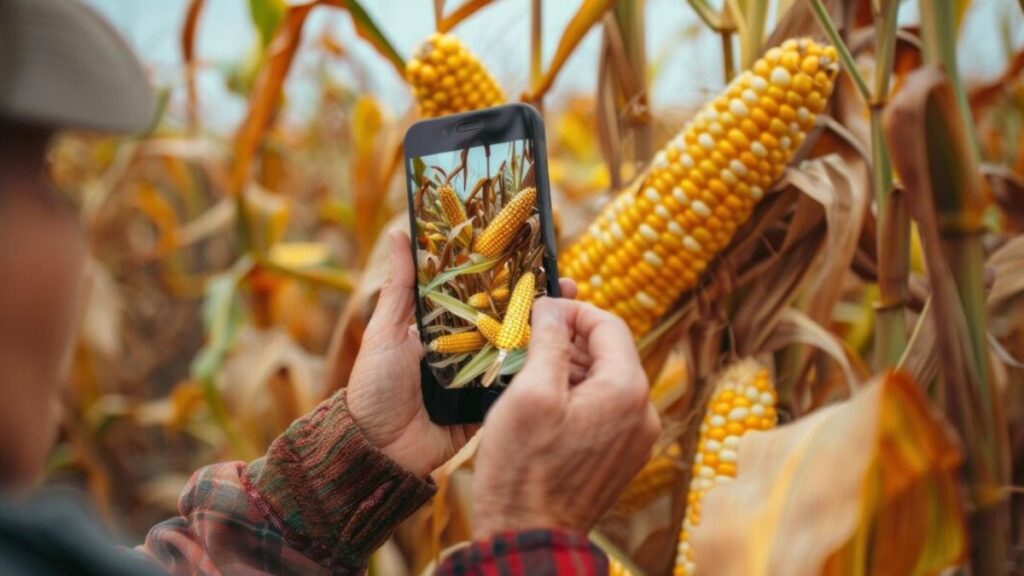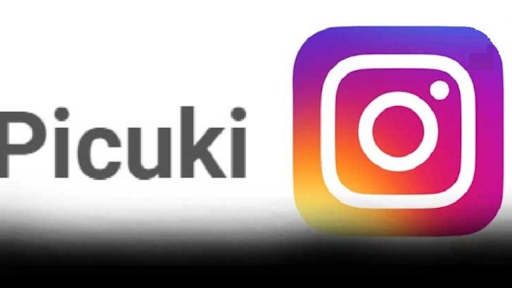
Imagine a future where farmers hold the reins of their own prosperity, fundamentally changing how maize is traded. This is the vision behind FPO (Farmer Producer Organizations) corn—a game-changer that brings empowerment and new avenues for farmers to explore. More than just a means of cultivating crops, FPO corn provides farmers with the tools to overcome longstanding limitations, creating fresh opportunities in maize markets.
FPO corn embodies a transformative approach in agriculture, focused on sustainable practices, enhanced profitability, and collective advancement. Through this model, farmers gain the strength to operate independently and collaboratively, redefining what’s possible in the maize industry.
Curious to learn how FPO corn is revolutionizing maize trading and empowering farmers globally? Let’s explore the key components that make this approach a beacon of hope for farmers everywhere.
The Current State of Maize Trade for Farmers
Maize trading is an essential income stream for farmers worldwide, yet countless smallholders struggle to access fair and profitable markets. Challenges like price fluctuations and limited bargaining power frequently put these farmers at a disadvantage, restricting their earnings.
While global demand for maize continues to grow, the financial benefits often bypass the farmers most in need. Middlemen commonly control the supply chain, shrinking profit margins and endangering farmer livelihoods.
Additionally, farmers must contend with climate-related issues that affect crop quality and yield, adding another layer of difficulty to the trading process. For many, this results in an ongoing cycle of unpredictability and financial strain as they work to fulfill market demands.
The current system is ripe for transformation. Innovative solutions are needed to empower farmers, streamline the supply chain, and ultimately foster economic stability for maize producers around the world.
How FPO Corn is Changing the Game
FPO Corn is redefining the maize trading ecosystem by uniting growers under Farmer Producer Organizations (FPOs), which collectively strengthen farmers’ bargaining power. Through these organizations, farmers gain the leverage to negotiate fairer prices, resulting in more equitable income for their labor and produce.
FPO Corn also expands farmers’ access to essential inputs, such as high-quality seeds and fertilizers, while creating a collaborative network where knowledge-sharing and best practices enhance productivity for all members. This cooperative approach reduces the reliance on middlemen, optimizing the supply chain so that farmers retain a larger share of profits, and gain more control over pricing and distribution.
Many FPOs also offer educational programs in sustainable farming techniques, empowering farmers with skills that support healthier crop yields and improve soil quality—both vital for sustained agricultural success.
This model is ushering in a new era of maize trade, where collaboration is key, strengthening market engagement for farmers and fostering community connections across regions.
Benefits of FPO Corn for Farmers
FPO Corn offers significant benefits for farmers focused on increasing both profitability and sustainability. This model builds collective resilience, empowering farmers to combine resources and exchange valuable insights.
Through the formation of Farmer Producer Organizations, farmers strengthen their market influence, enabling them to secure better prices for their maize compared to traditional sales channels.
Another major advantage is access to advanced technology. FPOs often provide training on improved agricultural techniques, pest control, and crop rotation strategies, which help boost crop yields and productivity.
FPO Corn also streamlines the supply chain by facilitating direct connections between farmers and buyers, reducing the dependence on middlemen who typically claim a large share of the profits.
Furthermore, with enhanced access to credit through these organizations, farmers find it more manageable to invest in quality seeds and fertilizers. This financial support encourages sustainable practices that protect their income and contribute to environmental stewardship.
Challenges and Solutions
While FPO corn offers exciting potential, farmers still encounter significant obstacles. The initial setup costs can be a barrier, especially for smaller-scale farmers who may lack the funds to invest in essential infrastructure.
Reaching viable markets is another hurdle. Farmers often face difficulty in connecting with buyers who value their quality standards, sometimes leading to financial setbacks.
Moreover, education and training are key to successfully implementing FPO methods, yet not all farmers have access to information on best practices or technological innovations that could enhance productivity.
Fortunately, solutions are available. Financial support, such as grants or loans from governments and NGOs, can help small-scale farmers manage initial costs. Training workshops on modern farming practices provide local growers with tools to boost efficiency.
Building cooperative networks allows farmers to pool resources, share expertise, and form a united market presence, helping secure fair prices for their crops.
Additionally, new technologies, like mobile applications, enable direct connections between farmers and consumers, simplifying sales and reducing reliance on intermediaries.
Success Stories of Farmers Using FPO Corn
Farmers nationwide are experiencing impressive benefits from FPO corn programs. Take Rajesh, for instance. By joining a local Farmer Producer Organization (FPO), he transformed his modest maize farm into a successful business. With the power of collective bargaining, he achieved better prices for his crops and lowered input costs.
Similarly, Meera tapped into the resources her FPO provided, gaining access to modern farming techniques. These improvements not only increased her crop yield but also elevated the quality of her maize, allowing her to reach larger markets previously beyond her access.
Then there’s Arun, who took advantage of the shared machinery available through his FPO. By saving on equipment rental and maintenance costs, he was able to reinvest those savings into refining his farming practices.
These examples show how FPO corn initiatives are empowering farmers like Rajesh, Meera, and Arun—opening up new avenues for growth and fostering sustainable development in the maize trade.
The Future of Maize Trade with FPO Corn
The future of maize trade is set to thrive with the expansion of FPO corn. As more farmers join Farmer Producer Organizations (FPOs), they harness greater collective power and market influence.
This approach encourages advancements in farming practices. Through shared resources and knowledge, farmers can adopt advanced techniques that improve both crop yield and quality.
FPOs also streamline connections between farmers and markets, reducing the role of intermediaries. This direct link ensures fairer pricing for farmers and offers consumers access to fresher produce.
With ongoing technological developments, data-driven tools are poised to strengthen these organizations. Analytics will enable farmers to anticipate market trends and better align their production cycles.
Sustainability remains a central priority. FPO corn programs often emphasize eco-conscious practices, enhancing productivity while conserving critical ecosystems for the benefit of future generations.
Problems and Fixes
Farmers encounter various obstacles when engaging with FPO corn. High initial setup costs can discourage participation, especially for small-scale growers who may lack the funds to build the necessary infrastructure.
Reaching markets is another hurdle, as farmers often struggle to connect with buyers who value their crop quality, sometimes resulting in financial setbacks.
Education and training are crucial for adopting FPO practices successfully. Many farmers lack access to up-to-date information on best practices and new technologies that could improve their yields.
However, solutions are available. Financial assistance programs from governments and NGOs can support smaller farms, while workshops on modern agricultural methods can equip local farmers with valuable skills.
Forming cooperative networks allows farmers to share resources and knowledge effectively. By working together, they build a stronger market position, which helps them secure better prices for their produce.
Technology also plays a role, with tools like mobile applications that link producers directly to consumers, making sales more efficient and minimizing reliance on middlemen.
FAQs
What is FPO corn?
FPO corn refers to maize produced and traded through Farmer Producer Organizations (FPOs). These organizations allow farmers to collaborate, negotiate better prices, access quality resources, and improve their market presence collectively.
How does joining an FPO benefit maize farmers?
FPOs empower farmers with collective bargaining power, helping them secure fairer prices for their produce. They also provide access to shared resources, training on sustainable farming practices, and direct market connections that reduce reliance on intermediaries.
What challenges might farmers face with FPO corn?
Common challenges include high initial setup costs, limited market access, and the need for education on best farming practices. However, these issues can be mitigated through financial assistance, cooperative networks, and educational workshops.
How do FPOs contribute to sustainable farming?
Many FPOs prioritize sustainable farming techniques by offering training on eco-friendly practices. This focus on sustainability not only improves crop yield but also helps maintain soil health and environmental balance.
Can small-scale farmers benefit from FPO corn?
Absolutely. FPOs are designed to support farmers of all scales by pooling resources and collective knowledge. Small-scale farmers, in particular, benefit from reduced input costs, shared equipment, and improved market access.
Conclusion
The shift toward FPO corn is reshaping the maize trade by giving farmers increased control over their livelihoods. Through collective bargaining, resource sharing, and sustainable practices, FPOs are transforming how maize is grown, traded, and valued. By bridging gaps between producers and markets, they ensure farmers receive fair compensation and a stronger market presence. As technology and supportive policies continue to evolve, FPOs offer a promising path toward a sustainable, profitable, and inclusive future for maize growers. This collaborative approach not only strengthens communities but also lays the foundation for long-term agricultural resilience.
Stay informed with the latest news and updates on Thevergeblog




